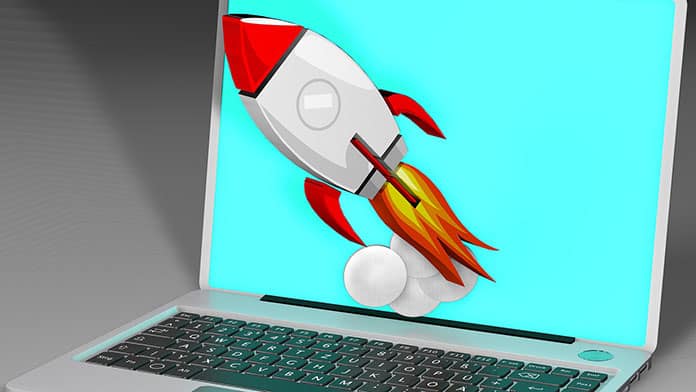Many video game enthusiasts will tell you that laptops are not the best option as far as gaming platforms go. Most players would rather get a console or a gaming PC.
Nevertheless, it is not that surprising to see more and more people go for gaming laptops. While expensive, these devices can also provide a decent gaming experience, especially if you are playing a video game that does not require that many resources.
At the same time, some laptop owners have a device that was not manufactured for gaming, at least as far as its specifications go. But does it mean that these people should forget about playing video games on their older laptops?
Not necessarily. Some video games are not that demanding, and there are a few things you can do to improve the overall laptop performance. This article will give you 7 tips for exactly that, so make sure to continue reading.
Find Out If It Is Possible to Upgrade Hardware
Hardware upgrades, unfortunately, are not really a common thing when it comes to laptops. Most hardware pieces are integrated, meaning that you cannot really replace them with new ones.
Having said that, the lack of hardware flexibility is not the case with every laptop model. You can still check just to be sure, and if there is an option to add extra RAM. After all, it is possible that your system has run out of application memory, and the current amount of RAM is not enough, nor does restarting the device regularly.
Also, it is worth noting that external GPUs are becoming more and more popular among laptop owners. Though they are quite expensive, getting one would make a significant difference, particularly if you play video games on the device.

Free Up Enough Disk Space
Starting with the computer drive’s clutter is usually a good approach. It is likely that the amount of free space on the laptop’s disk is insufficient. Right now, it is common to see SSDs instead of HDDs because the latter are inferior performance-wise.
On the other hand, hard drives are cheaper, and they provide more available storage, meaning that SSD users are more likely to run into the problem.
To free up drive space, get rid of unnecessary files and figure out what you can transfer to cloud storage, external HDDs, and USB flash sticks.
If media files are a problem, you can stick to streaming platforms instead of hoarding movies, TV shows, and music on the computer.
Clean Dust and Get a Cooling Pad
Cleaning the dust might not be the most exciting task in the world, but it is still necessary if you want to have a computer that is functioning properly. Otherwise, you will hear loud noises and notice overheating even if you are not playing video games.
And once you launch a video game, the noise could be loud enough to distract you. Not to mention that it gives off a vibe of something being seriously wrong with the computer.
Take some time and clean the dust inside your laptop. You can also consider getting a cooling pad to fight the overheating issue.
Check for Missing OS Updates
Missing operating system updates could be another reason why you are struggling to play video games on a laptop. More often than not, an OS update introduces performance upgrades in addition to new features and security improvements.
Some OS updates are major, while others are relatively small. Nevertheless, the rule of thumb is that you should have the latest OS version on your computer for optimal performance, which obviously affects video games.
Use Antivirus to Detect Potential Malware
Do not underestimate the damage even a small virus can cause to the device. Use antivirus software to thoroughly check the device and see if it has any corrupted data. It could be that a few viruses or malware are behind the issue, and the only way to go forward is to eliminate them.
Manage Background Processes
Since video games can be quite demanding as far as computer resources go, you want to make sure that the system is optimized properly. Keep an eye on background processes and quit applications and other processes that should not be active.
For example, you might forget about closing an application after you finish using it. Or, your laptop has too many startup items that load in the background after you boot the computer.
macOS users can check Activity Monitor, and MS Windows users can check Task Manager to find which background items are consuming the most resources and react to them accordingly.

Lower Graphics in Video Games
The last bit of advice is not related to the laptop itself. You can look to tinker with video game settings. Lowering graphics might decrease the overall look of a video game, but you get to experience fewer instances of frame drops and other issues while playing a game















Leave a Reply